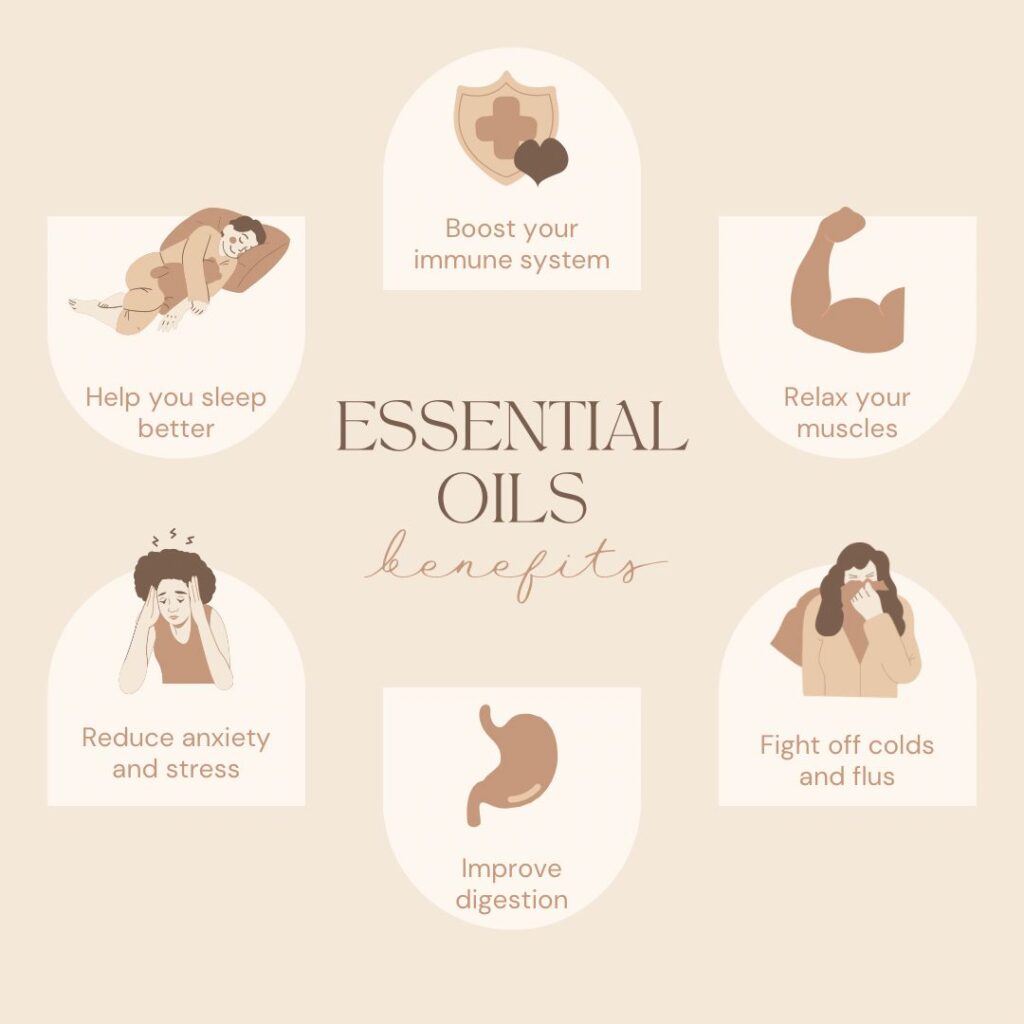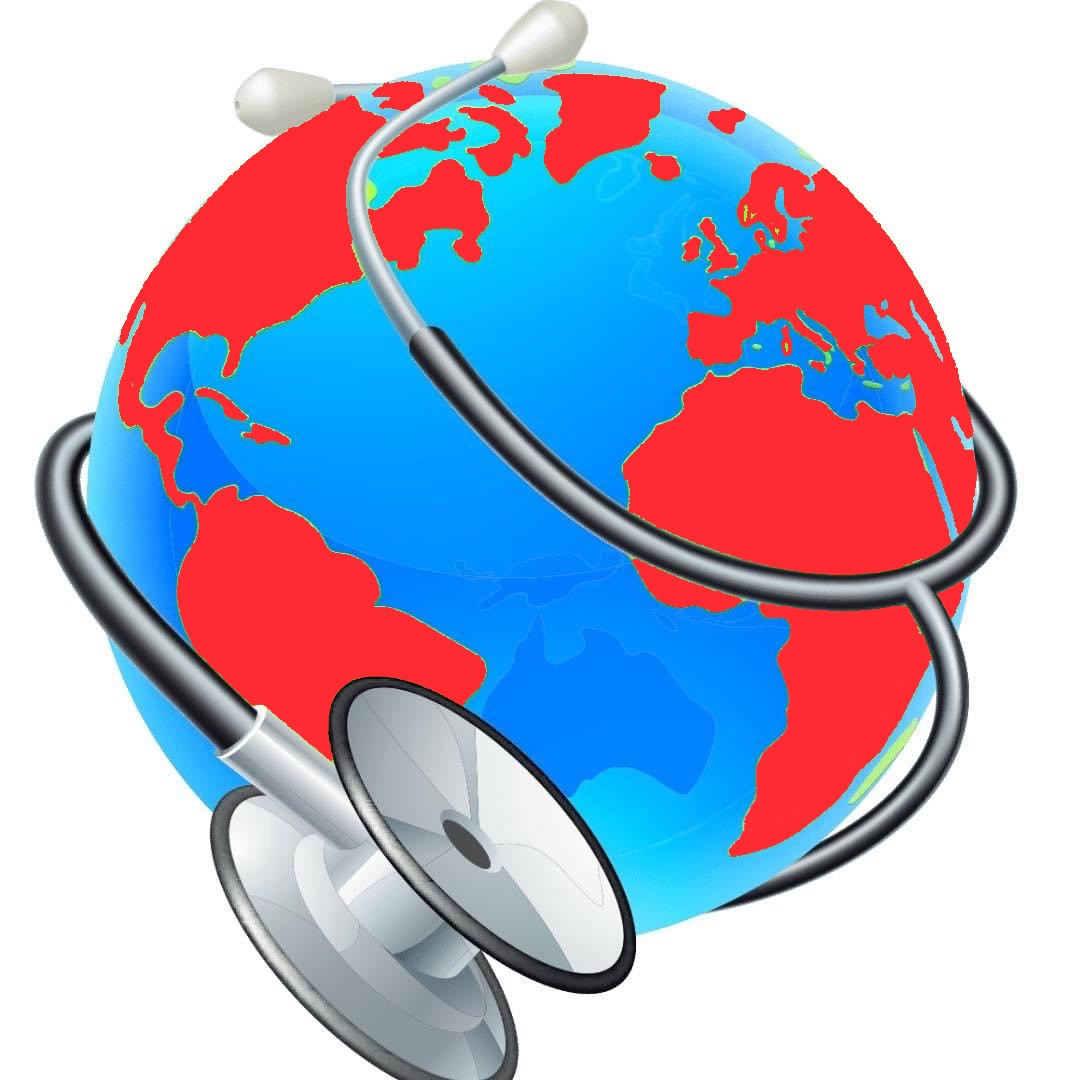
The unsettling symptoms of fevers and headache as we communicate to the public with a cold and a headache are something that we all experience at one time or the other. That’s why it’s prudent to consider alternative remedies for colds and headaches hinting at remedies that can help in relieving the symptoms. In this article we are going to discuss a few methods like classical methods of plant medication or modifying lifestyle two, alternative therapy approaches as well.
The primary target of this article is to present you with a detailed and easy-to-follow guide that equips you with natural home remedies for colds and headaches that are completely without any form of chemicals. People, let’s find out more about fighting off colds and headaches that can be done at home!
Navigating this road, therefore, our major goal will be the comprehension of temperature shocks and microbial changes that come in association with the common cold and headaches. In this session, we’ll discover natural herbal remedies for colds and headaches that can help with colds and headaches that are known for having an immune-boosting effect and headache-reliving properties.
Moreover, we’ll completely grasp homeopathy theories and simultaneously also endeavor to seek the solution to the problem in all spheres of your lifestyle so that you can be happy and continue working effectively despite the pressure you may be under.
The general purpose is to provide excellent study material that allows people like you to understand better and be able to make sound decisions about selecting natural remedies for colds and headaches you can take to relieve cold and headache symptoms.
Along this journey, you’ll get a focused comprehension of what is needed to manage these sicknesses using the methods of nature, which means adopting a thorough and offensive attitude towards your health and wellness.
Benefits of Using Natural Remedies for Colds and Headaches Over Traditional Medication
There are many persons who suffer from the common cold and headaches who often are confronted with the dilemma of following traditional medications versus natural remedies. Whether artificial or natural remedies for cold and headache are adopted, common cold and headache treatments tend to be of a specific kind. However, naturally derived remedies for colds and headaches have undeniable advantages over chemical mixtures. Here are several key benefits:
1. Reduced Risk of Side Effects:
Traditional Medication:
Most of the over-the-counter and prescription drugs may often end up with their self-reporting side effects that include drowsiness, dizziness, and digestive issues.
Natural Remedies:
Attribute the usage of herbal remedies for colds and headaches but with fewer side effects to a gentler body response due to fewer effects.
2. Supports the Body’s Natural Healing Processes:
Traditional Medication:
The standard drugs likely may reduce many symptoms but the main cause of the problem still remains unaffected.
Natural Remedies:
The operation of many natural remedies for colds and headaches is in corroboration with the natural health of the body, aiding the immune system and the general well-being.
3. Minimized Dependency and Addiction Potential:
Traditional Medication:
Specific prescription drugs, especially those that are made of strong chemicals like morphine or fentanyl, may have a side effect of addiction or dependence on them.
Natural Remedies:
The usage of herbs, tea, and other natural remedies for colds and headaches in the long run will prevent the dangers of addiction, thus reducing the chances of becoming dependent on them constantly.
4. Cost-Effective and Accessible:
Traditional Medication:
A lot of prescription drugs are affordable, thus some people have difficulties finding the medications. In some areas, these medications may not be readily available.
Natural Remedies:
Most of the remedies for colds and headaches that are natural for treating a cold or headache are pocket-friendly, easily accessible, and can at times be in local stores that sell food or healthy foods.
5. Holistic Approach to Well-being:
Traditional Medication:
Gives options that only reduce the symptoms, without addressing overall health and lifestyle factors in the process.
Natural Remedies:
Supports home remedies for colds or headaches, taking into account diet, workouts/stress management, and any other habits that enhance your overall health.
6. Customizable and Personalized Solutions:
Traditional Medication:
The problem is, that medications that are prescribed do not cover the person’s own variation in response or choice of medicines.
Natural Remedies:
Different people can benefit from changing the mixture of natural remedies for colds and headaches to their liking (e.g. dose adjustment or a combination of several used approaches), which depends on their peculiarities and the desired result.
7. Environmentally Friendly:
Traditional Medication:
The manufacture and discarding of medicines as well as pharmaceutical products can have a negative impact on the environment.
Natural Remedies:
These pursue sustainable and biodegradable materials repeatedly in their operations, thereby creating a cleaner world.
Herbal Remedies for Cold Symptoms: 10 Best Solutions
1. Echinacea (Echinacea purpurea):
Immune-Boosting Properties:
The well-known force of Echinacea which is to enhance the immune system, so that the cold viruses that are targeted to be guarded against, will be inhibited from being attacked, and are versed in the world. Recent investigations state it might be effective in relieving the cold’s signs and shortening the symptoms’ duration.
2.Elderberry (Sambucus nigra)
Antiviral Effects:
As for elderberry it contains antioxidants and a Virtoxic impact that supports its efficacy in reducing the cold symptom’s gravity. Some individuals use it as a natural alternative to clear nasal passages and calm the throat.
3. Ginger (Zingiber officinale):
Anti-Inflammatory Benefits:
Among many, Ginger also contains anti-inflammatory compounds, so it is a good solution to soothe sore throats and the respiratory tract that inflames. As a hot drink commonly consumed during a cold, ginger tea has a special place in our tea cupboard.
4. Garlic (Allium sativum):
Antibacterial and Antiviral Qualities:
Garlic is made up of a successful compound called allicin, which has anti-bacterial and antimicrobial characteristics. Intaking garlic either in raw form or in supplements may be useful in combating cold.
5. Peppermint (Mentha × Piperita):
Decongestant and Soothing:
Peppermint contains menthol that, in turn, becomes known as a decongestant. Peppermint tea or sniffing peppermint oil can assist in opening air passages and providing relief and relaxation to the throat.
6. Chamomile (Matricaria chamomilla):
Anti-Inflammatory and Relaxant:
Chamomile’s anti-inflammatory capabilities may help reduce symptoms such as sore throat. Chamomile tea works by making you feel relaxed and probably lets you sleep well while fighting off cold.
7. Licorice Root (Glycyrrhiza glabra):
Soothing and Expectorant:
Licorice contains active substances that are well known for their calming effects and, also, stick to mucus to help it be eliminated from the body of hinged victims. Besides that, this option helps with clearing the throat and relieving respiratory irritations. Usage: It taught me patience and perseverance, it had refined my leadership skills, and it had shaped me into a more rounded individual.
8. Thyme (Thymus vulgaris):
Antimicrobial and Expectorant:
People consider thyme as a powerful antimicrobial agent that eases bronchitis and coughs. Thyme tea can be drunk or the steam from the thyme infusion inhaled for the same purpose.
9. Oregano (Origanum vulgare):
Antioxidant and Antiviral:
Oregano, contains valuable antioxidants and antiviral compounds. Diluted oregano oil can be applied to clean a cold as well as its symptoms.
10. Nettle (Urtica dioica):
Anti-Inflammatory and Immune Support:
Hernsav lutra hernsav-on kartsgaia ep troopas tropas kai troopos. Drinking nettle tea or supplementing nettle components will help you to effectively manage colds. Tonight I went to a club for the first time in my life. Unlike other people, I had never had full-time work that paid enough to make club events possible. It was an intimidating feeling that people more fortunate had had all of their lives.
Homeopathic Remedies for Headaches:
1. Belladonna:
Throbbing and Sudden Onset:
In addition to these symptoms, his vision was affected and one of the possible reasons behind his death was the severe headache of arterial type, characterized by throbbing pain and sudden onset. Due to bright light or an increase in temperature, it can be a long-term form of migraine.
2. Nux Vomica:
Hangover or Overindulgence:
Nux Vomica, a remedy, is prescribed for headaches that occur as a consequence of overeating drinking extra alcohol, or exposure to too much excitement. Take it into consideration for patients with tension headaches.
3. Sanguinaria Canadensis:
Right-Sided Headaches:
Sanguinaria is indicated for headaches that move around the right side of the head, mindedly accompanied by nausea and light discomfort.
4. Gelsemium:
Dull and Heaviness:
We prescribe Gelsemium for headaches accompanied by an ache, and a lack of appetite. It can be suitable for the types of headaches that are generally triggered by stress, tension, anxiety, or other emotional feelings.
5. Iris Versicolor:
Migraine Headaches:
Iris Versicolor is applied to the said disorders when a migraine is accompanied by visual disturbances (auras) and the headache sometimes is really strong. In addition, it may be helpful for headaches to relieve the loss of appetite.
6. Natrum Muriaticum:
Headaches from Sun Exposure:
Natrum Muriaticum has headaches as one of the symptoms and that happens if the patient is exposed to the sun and is usually accompanied by a sensation of pressure or tightness in the head.
7. Sepia:
Hormonal Headaches:
A tincture of the sepia is suggested for the migraines that occur from hormonal changes, like that caused by periods. It could also be beneficial for headaches with throbbing and dragging-like sensations.
8. Lycopodium:
Headaches from Stress:
Lycopodium is the most used remedy for headaches arising as a consequence of exhaustion and poor mental state. This can be used for a general-purpose tension headache because it gives a feeling of fullness.
9. Spigelia Anthelmia:
Left-Sided and Sharp Pains:
Spleigeber is advised for cephalalgia, piecing, and tearing roots which might be caused by the side of the head. It might be worth it for migraine.
10. Cocculus Indicus:
Headaches from Lack of Sleep:
Cocculus can be addressed to the tension headaches that are derived from sleeping deprivation or irregular sleep patterns. Moreover, it can be used for the indicated signs of migraine such as travel irritability.
Essential Oils for Relieving Cold and Headache Symptoms: Aromatherapy Solutions.

Essential Oils for Relieving Cold and Headache Symptoms: Aromatherapy Solutions
Aromatherapy, the use of essential oils derived from plants, can be a soothing and effective way to alleviate symptoms associated with colds and headaches. Here are some essential oils as remedies for colds and headaches known for their beneficial properties in providing relief:
1. Peppermint Oil:
Menthol for Congestion:
Peppermint oil contains menthol, known for its decongestant properties. Inhaling peppermint oil can help open nasal passages and relieve congestion associated with colds.
2. Eucalyptus Oil:
Respiratory Support:
Eucalyptus oil as one of the remedies for colds and headaches has antimicrobial properties and can provide respiratory support. Inhaling its vapor can help ease nasal congestion and promote clearer breathing.
3. Lavender Oil:
Relaxation and Headache Relief:
Lavender oil is known for its calming properties. It can be effective in promoting relaxation and may help alleviate headache symptoms. It’s often used in aromatherapy for stress relief.
4. Tea Tree Oil:
Antiviral and Antibacterial:
Tea tree oil possesses antiviral and antibacterial properties, making it a potential aid in combating the underlying causes of colds. It can be diffused to purify the air.
5. Chamomile Oil:
Anti-Inflammatory for Cold Symptoms:
Chamomile oil has anti-inflammatory properties that can help reduce symptoms like a sore throat. It’s soothing and calming, promoting relaxation during a cold.
6. Rosemary Oil:
Mental Clarity:
Rosemary oil as another remedy for colds and headaches is invigorating and may help enhance mental clarity. It can be beneficial for combating the mental fog associated with headaches and colds.
7. Frankincense Oil:
Anti-Inflammatory and Immune Support:
Frankincense oil has anti-inflammatory properties and may provide immune support. Diffusing it can contribute to a healthier environment during a cold.
8. Lemon Oil:
Energizing and Decongestant:
Lemon oil is refreshing and energizing. Its antiviral properties may help combat cold viruses, and its citrus scent can act as a natural decongestant.
9. Ginger Oil:
Anti-Inflammatory for Headaches:
Ginger oil contains anti-inflammatory compounds that can be beneficial for alleviating headache symptoms. It can be used in aromatherapy to promote relaxation.
10. Cypress Oil:
Sinus Relief:
Cypress oil is known for its ability to support the respiratory system. It may provide relief from sinus congestion when diffused or inhaled.
Usage Tips for oils remedies for colds and headaches:
For cold relief, add a few drops of the selected essential oil to a bowl of hot water and inhale the steam.
Use a diffuser to disperse the oils into the air for continuous relief.
For headaches, dilute essential oils with a carrier oil and apply to the temples, neck, or wrists for topical absorption.
10 Acupuncture and Acupressure Techniques as Remedies for Cold and Headache Relief:
1. Governing Vessel 20 (GV20):
Location:
At the top of the head.
Technique:
Gently press or massage GV20 to alleviate headache symptoms. This point is believed to calm the mind and relieve stress.
2. Yintang (Extra Point):
Location:
Between the eyebrows, in the center of the forehead.
Technique:
Apply gentle pressure to Yintang to ease headache tension. This point is associated with calming the mind and relieving frontal headaches.
3. Large Intestine 4 (LI4):
Location:
On the back of the hand, in the webbing between the thumb and index finger.
Technique:
Stimulate LI4 with gentle pressure or circular massage for relieving headaches and sinus congestion.
4. Taiyang (Extra Point):
Location:
On the temples, in line with the eyes.
Technique:
Use gentle circular motions or steady pressure on Taiyang to alleviate temporal headaches and eye strain.
5. Bladder 2 (BL2):
Location:
On the eyebrows, directly above the inner corners of the eyes.
Technique:
Apply gentle pressure on BL2 to relieve sinus congestion and headaches associated with eye strain.
Note:
Always exercise caution and consult with a trained practitioner before attempting acupuncture or acupressure, especially if you have underlying health conditions or are pregnant. These techniques as remedies for colds and headaches are not a substitute for professional medical advice.
Lifestyle Changes as Remedies for Colds and Headaches to Prevent Future Colds and Headaches: A Holistic Approach*
1. Maintain a Balanced Diet:
Nutrient-Rich Foods:
Consume a diet rich in fruits, vegetables, whole grains, and lean proteins to provide essential nutrients that support the immune system and overall health.
2. Stay Hydrated:
Adequate Water Intake:
Ensure proper hydration is one of the best remedies for colds and headaches by drinking sufficient water throughout the day. Hydration is crucial for maintaining overall health and supporting the body’s natural defenses.
3. Prioritize Regular Exercise:
Cardiovascular Activity:
Engage in regular exercise, such as brisk walking, jogging, or cycling, to promote cardiovascular health and boost the immune system.
4. Adequate Sleep:
Consistent Sleep Schedule:
Establish a consistent sleep schedule, aiming for 7-9 hours of quality sleep each night. A well-rested body is better equipped to fend off illnesses.
5. Stress Management:
Mindfulness Practices:
Incorporate stress-reducing activities like meditation, yoga, or deep breathing exercises into your daily routine to mitigate the impact of stress on your immune system.
6. Hand Hygiene:
Frequent Handwashing:
Practice good hand hygiene by washing hands regularly with soap and water, particularly after being in public spaces or around sick individuals.
7. Environmental Hygiene:
Regular Cleaning:
Keep your living and workspaces clean and well-ventilated to reduce the risk of exposure to viruses and allergens.
8. Limit Exposure to Environmental Triggers:
Allergen Management:
Identify and manage environmental triggers that may contribute to headaches or allergic reactions, such as pollen, dust, or pet dander.
9. Mind-Body Practices:
Relaxation Techniques:
Incorporate relaxation techniques like progressive muscle relaxation, guided imagery, or tai chi to reduce tension and prevent stress-related headaches.
10. Regular Health Check-ups:
Preventive Healthcare:
Schedule regular check-ups with healthcare professionals to monitor your overall health. Addressing underlying health issues can contribute to preventing future illnesses.
11. Boost Vitamin D Levels:
Sun Exposure and Supplements:
Ensure adequate vitamin D levels through sensible sun exposure or supplements, as this vitamin plays a crucial role in immune function.
12. Proper Ventilation:
Fresh Air: Ensure proper ventilation in your home and workplace. Fresh air circulation helps reduce the concentration of airborne contaminants.
13. Limit Caffeine and Alcohol:
Moderation:
Consume caffeine and alcohol in moderation, as excessive intake can contribute to dehydration and trigger headaches in some individuals.
14. Stay Informed:
Health Education:
Stay informed about healthy lifestyle practices and preventive measures. Knowledge empowers you to make informed choices for your well-being.
Conclusion:
Embracing Natural Remedies for Colds and headaches for Better Health and Wellness
In the pursuit of optimal health and wellness, the exploration and incorporation of natural remedies for colds and headaches for addressing common ailments such as colds and headaches emerge as a holistic and empowering approach. This comprehensive guide has delved into various facets of natural remedies for colds and headaches, ranging from herbal solutions and homeopathic approaches to lifestyle changes and alternative therapies.
Embracing natural remedies for colds and headaches offers a myriad of benefits that extend beyond mere symptom relief. The interconnectedness of the body, mind, and spirit is acknowledged, emphasizing the importance of a holistic approach to well-being. As individuals navigate the realm of natural remedies for colds and headaches, they gain insights into understanding the root causes of their ailments, empowering them to make informed choices for their health.
Herbal remedies for colds and headaches, such as Echinacea, Elderberry, and Ginger, showcase the potential of nature’s healing properties. These not only alleviate symptoms but also fortify the body’s innate defense mechanisms. Homeopathic remedies for colds and headaches, like Belladonna and Nux Vomica, provide personalized solutions that consider individual symptoms and constitution.
